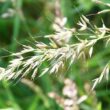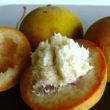Hormonal imbalance may leave a woman with polycystic ovary syndrome. Known as PCOS for short, it can cause the female with the condition to have with irregular periods and a hard time getting pregnant. Many women suffering from PCOS also develop benign cysts in the ovaries. The condition tends to have an impact on the physical appearance as well.
Luckily, polycystic ovary syndrome is highly treatable with the help of certain prescribed medications. Surgery may also be recommended if the woman fails to ovulate even after taking medications. There’s also a wide variety of home remedies available. It’s important for PCOS to be diagnosed and treated right away. Otherwise, it may cause some complications such as obesity, metabolic syndrome, diabetes, heart disease and infertility.
There are many symptoms associated with PCOS, which tend to gradually show up when hormonal changes in the woman’s body takes place. Some of them include:
- Heavy, irregular or non-existent periods
- Hair loss on the scalp and unwanted hair on the face, chest, back and stomach
- Oily skin
- Skin tags
- Acne
- Failure to ovulate
- Repeated miscarriages
- Insulin resistance and having too much insulin in the blood
- Obesity of the upper body
- Breathing problems especially during bedtime
- Mood swings and depression
Home Remedies for PCOS
There are different medications that may be given to women with polycystic ovary syndrome. It’s important to have the condition detected early on and treated promptly especially if the symptoms are severe as complications are likely to happen.
Various home remedies for PCOS are around. In case you have the condition and you want to dodge the common side effects of medications for it, try some of the solutions listed below. Make sure that you inform your doctor about your plan on using most especially herbs to attain relief from symptoms.
- Add protein to the diet. Protein is vital for the normal production of hormones. Including protein-rich foods such as meat, chicken, turkey, fish, eggs, milk, legumes and soy in the diet may help in reducing the symptoms as well as the recurrence of PCOS.
- Eat foods containing omega-3 fatty acids. It’s a good idea to eat sufficient amounts of oily fish, nuts and seeds because all of them contain omega-3 fatty acids. These healthy fats help in regulating the female hormones as well as improve sensitivity to insulin.
- Consume soy and soy products. Soybeans, soy nuts, soy milk and tofu are all excellent sources of isoflavones — plant based compounds that work just like estrogen. The regular consumption of soy and various soy products helps in regulating ovulation and menstruation.
- Take apple cider vinegar. It is said that the consumption of a couple of tablespoons of apple cider vinegar is effective for the reduction of PCOS symptoms. Apple cider vinegar is particularly helpful in reducing insulin sensitivity, lowering blood sugar levels and preventing weight loss.
- Include cinnamon in the diet. Sprinkling cinnamon powder on oatmeal, yogurt, peanut butter sandwich, ice cream, cereals and others is recommended if you have polycystic ovary syndrome. Cinnamon is a spice known to help normalize the menstrual cycle and manage insulin resistance.
- Add flaxseeds to food. No matter where you add them, flaxseeds can help in relieving the symptoms of PCOS as well as the condition itself. That’s because flaxseeds help in keeping the female hormones in check so that they don’t wreak havoc to the health.
- Take a teaspoon of fenugreek seeds. The consumption of fenugreek seeds is said to help regulate blood sugar levels and deal with insulin resistance. It may also ward off excess weight and high cholesterol levels. Before consuming fenugreek seeds, they have to be soaked in water for 6 to 8 hours.
- Drink chasteberry tea. Also known as vitex, chasteberry may help in regulating menstrual periods and balancing out the hormones. It is also said to help prevent infertility. To make chasteberry tea, simply add a teaspoon of it (fresh or dried) to a cup of boiling water. Allow to steep for 10 minutes, strain and slowly consume.
- Take saw palmetto capsules or extract. The consumption of saw palmetto according to the recommendations of a certified naturopath helps deal with some of the symptoms of polycystic ovary syndrome. They include hair thinning on the scalp and excessive hair growth on the face and elsewhere on the body.












